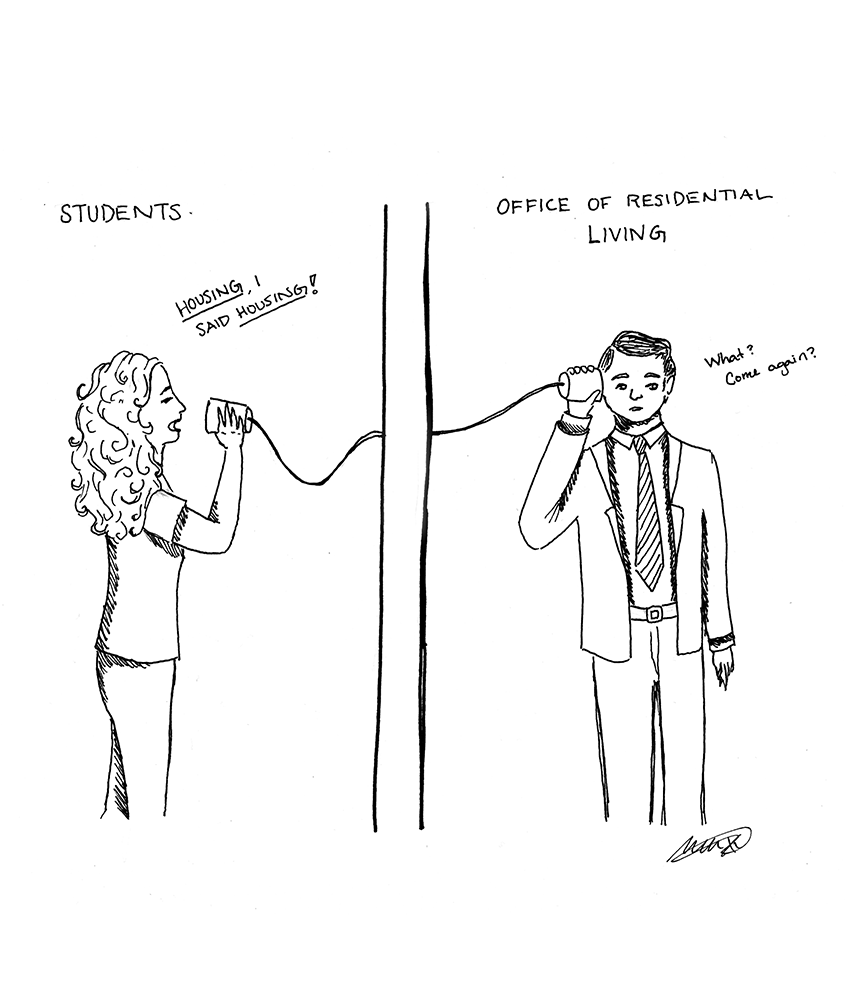A few months ago, students on the Hilltop gathered in protest when they found out about the subtle, yet radical change in Georgetown’s housing policy.
The decision to redact the housing eligibility of students studying abroad, thus preventing them from participating in housing selection, illustrates the Office of Residential Living’s lack of understanding and its apparent disconnect from the students. While the Class of 2016 may have gained a brief victory when Residential Living postponed this policy change to next year, this does not mask the dramatic change in housing selection further classes will face. Moreover, it is symptomatic of Residential Living’s poor performance in perception of what students actually need.
Last week’s housing selection process exemplifies this evident lack of communication. When I found out that the study abroad policy changes would take effect next fall, I assumed that the selection process would still be relatively straightforward. But what Residential Living failed to communicate clearly that once students studying abroad had their selections dropped, their housemates would only have three days to find a “hold” for the semester.
To me, this was ridiculous. In the past, sophomores received their selections in the fall and had months to find potential “fill-ins” if they were considering studying abroad. Not only did the Office dramatically hasten the process, it did not convey these policy changes clearly, causing students to scramble to find replacements for next semester.
The old model was working: While it wasn’t regulated by Residential Living, students holding spots in apartments were trusted to give up their spots the following semester, a process that was, for the most part, maintained. Forcing fall study-abroad students to re-apply for housing does not resolve the problem.
It seems ridiculous that students should have to go through their first two years in a dorm with the expectation of an upgrade to an apartment during their junior year, only to lose this opportunity because of the independent academic decision to study abroad. Residential Living claims that these changes will streamline the system, albeit at the expense of some student freedom, but they have succeeded only in further adding to the unnecessary regulation of student life. Why does the administration see a need to fix something that is not broken?
While I am unsure of how much of this article Residential Living will actually take into consideration, I have simple proposals as to how the department can improve the policy. I have no problem with the housing selection process for both rising sophomores and rising juniors, but preventing fall study- abroad students from getting the apartment they have been waiting two years for is a wholly unnecessary deterrent for students to study abroad at all.
Continuing the informal but effective process of holding spots is the best way that juniors can ensure they have their preferred housing choices. The best option is simply to run selection in a similar manner to how it was done this year, but with more time for students to find suitable replacements if they are studying abroad.
On a much broader scale, Residential Living should revise the way it communicates with undergraduates. These recent incidents illustrate a clear shortfall in the department’s ability to understand what appropriate measures to take. Involving students more in the planning of housing policy and keeping them informed of changes will go a long way in developing a much stronger and constructive relationship.
It should not take the persuasive action of Georgetown University Student Association to alter a policy that the majority of students look upon unfavorably. If Residential Living is truly committed to incentivizing students to stay on campus, it should start listening to the actual demands of students rather than basing its policies on what it perceives people need.
ANIRUDHA VADDADI is a sophomore in the School of Foreign Service.




















